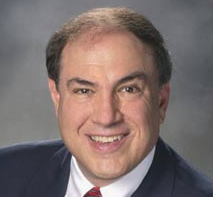
State: N.J.
Gelman: Employer Must Accommodate Off-Hours Use of Medical Marijuana: [2019-04-17]
An employee licensed to use medical marijuana under the New Jersey Compassionate Use Medical Marijuana Act may proceed with a New Jersey Law Against Discrimination (LAD) action ageist his employer for unlawful termination.

Jon L. Gelman
The employee, who was suffering from cancer, received a license from his medical doctor to obtain and use medical marijuana. The employee was involved in a motor vehicle accident, and the employer terminated him upon learning he was using the drug.
While the court did not address the effect of medical marijuana on job performance, it did opine:
“In considering the relationship between the Compassionate Use Act and the LAD, we start by rejecting plaintiff’s argument that these enactments are in conflict. We reject that assertion because the Legislature plainly said there was no conflict; the Legislature’s actual words bear repeating: 'Nothing in this act shall be construed to require ... an employer to accommodate the medical use of marijuana in any workplace.' These words are unambiguous; they require no interpretation and permit no deviation. Those words can only mean one thing: The Compassionate Use Act intended to cause no impact on existing employment rights. The Compassionate Use Act neither created new employment rights nor destroyed existing employment rights; it certainly expressed no intent to alter the LAD. Just as the Compassionate Use Act imposes no burden on defendants, it negates no rights or claims available to plaintiff that emanate from the LAD.
“…. To rephrase what we said earlier, just because the Legislature declared that '[n]othing in [the Compassionate Use Act] shall be construed to require ... an employer to accommodate the medical use of marijuana in any workplace,' [that] does not mean that the LAD may not impose such an obligation, particularly when the declination of an accommodation to such a user relates only to use 'in any workplace.' Judging this argument solely by reference to the pleadings and the statutes in questions, we repeat that plaintiff did not allege he sought an accommodation for his use of medical marijuana 'in [the] workplace'; he alleged only that he sought an accommodation that would allow his continued use of medical marijuana 'off-site' or during 'off-work hours.'”
Case law is developing in medical marijuana, and how it integrates with the Workers’ Compensation Act (WCA) is yet to be determined.
Claimants' attorney Jon L. Gelman is the author of "New Jersey Workers’ Compensation Law" and co-author of the national treatise "Modern Workers’ Compensation Law." He is based in Wayne, New Jersey. This blog post is republished with permission.